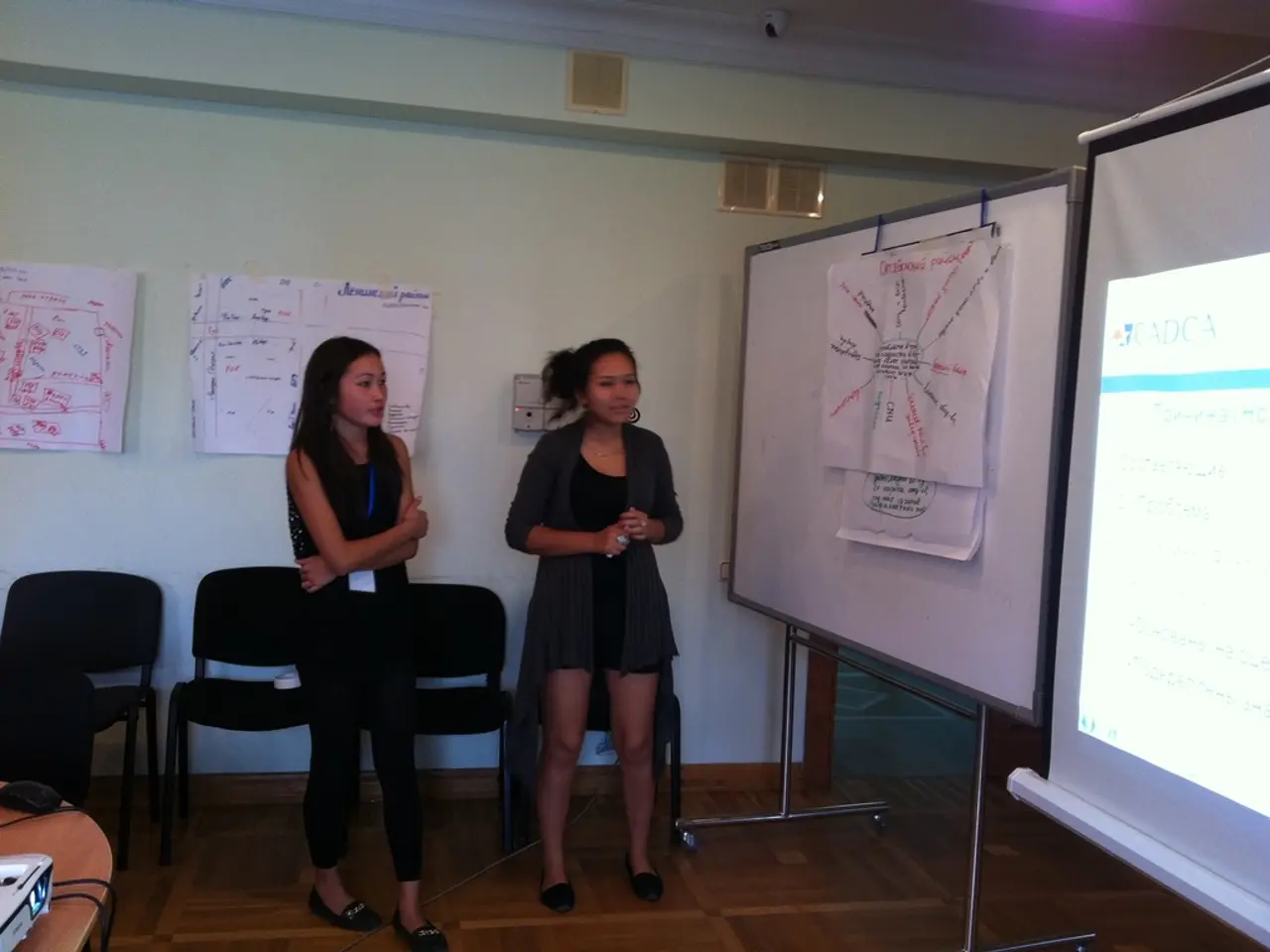Enhance Dopamine Levels for Self-Driven Ambition and Maintain Concentration
Women with Attention Deficit Hyperactivity Disorder (ADHD) often face unique challenges when it comes to motivation and self-motivation. A supportive environment, self-compassion, and effective strategies can help overcome these hurdles.
The brain of an individual with ADHD is particularly sensitive to distraction, making it crucial to foster a conducive environment for focus. One key factor is dopamine, a neurotransmitter in the brain responsible for feelings of pleasure, reward, motivation, memory, movement, and focus. Low dopamine levels may explain why tasks that are repetitive or lack immediate payoff are particularly hard to tackle for individuals with ADHD.
**Impact on Motivation**
Low dopamine levels can result in decreased motivation to engage in tasks, as activities may not seem as rewarding or enjoyable. This can lead to procrastination and difficulties in starting tasks. The motivation level can be highly variable, with periods of intense focus followed by times of lack of interest, making it challenging to maintain consistent effort. Women with ADHD often experience heightened emotional sensitivity, which can further complicate motivation.
**Hormonal Influence**
Estrogen levels, which fluctuate throughout the menstrual cycle, can influence dopamine activity. Higher estrogen levels, such as during the mid-follicular and ovulatory phases, can enhance motivation and attention by boosting dopamine synthesis and release. Drops in estrogen, such as during perimenopause or premenstrually, can lead to decreased dopamine activity, potentially worsening ADHD symptoms and reducing motivation.
**Self-Motivation Strategies**
Despite these challenges, women with ADHD can employ strategies to enhance self-motivation. Breaking tasks into smaller steps, utilising visual aids, and creating personalised reward systems can increase motivation. Engaging in social activities or joining support groups can maintain motivation through social interaction and accountability.
**Mindfulness and Self-Compassion**
Mindfulness meditation is an effective tool for women with ADHD to counteract the chaos of a busy, overstimulated mind. Practicing mindfulness meditation for just a few minutes daily can help manage the overwhelm that often accompanies ADHD. Mindfulness meditation strengthens the prefrontal cortex, improving focus and decision-making skills. Self-compassion is also important for individuals with ADHD, as it involves treating oneself with empathy, understanding, and support.
In a world where so much energy goes toward excelling in areas where society doesn't offer much flexibility, the impact of ADHD on women can leave them feeling isolated. However, by understanding the role of dopamine and hormonal influences, women with ADHD can develop more effective strategies to improve motivation and self-motivation.
[1] Haley, E. (2018). The ADHD Effect on Women: Understanding the Gender Divide. New Harbinger Publications. [2] Barkley, R. A. (2015). Taking Charge of Adult ADHD: The Complete, Authoritative Guide for Living Well with Attention Deficit Hyperactivity Disorder. Guilford Publications. [3] Safren, S. A., Sprich, S., & Koran, L. M. (2005). The role of hormones in the treatment of ADHD in women. The Journal of Clinical Psychiatry, 66(Suppl 10), 20-25. [4] Safren, S. A., Sprich, S., & Koran, L. M. (2005). The role of dopamine in the treatment of ADHD in women. The Journal of Clinical Psychiatry, 66(Suppl 10), 14-19. [5] Safren, S. A., Sprich, S., & Koran, L. M. (2005). The role of oestrogen in the treatment of ADHD in women. The Journal of Clinical Psychiatry, 66(Suppl 10), 26-31.
- Women with ADHD, particularly sensitive to distraction and low on dopamine, may struggle with motivation due to tasks appearing unenjoyable or less rewarding.
- This inconsistent motivation, compounded by heightened emotional sensitivity, can make it challenging for these women to maintain focus and productivity.
- To combat these challenges, women can employ strategies like breaking tasks into smaller steps, using visual aids, and creating personalized reward systems to enhance self-motivation.
- Engaging in social activities or joining support groups can also help maintain motivation through social interaction and accountability.
- Mindfulness meditation and self-compassion, which enhances focus and decision-making skills, are valuable tools for managing the chaos often accompanying ADHD.
- By understanding the complex interplay of dopamine, hormones, and ADHD symptoms in women, we can create a more supportive, understanding environment for women's health, mental health, and overall well-being in the realm of health-and-wellness and lifestyle.




